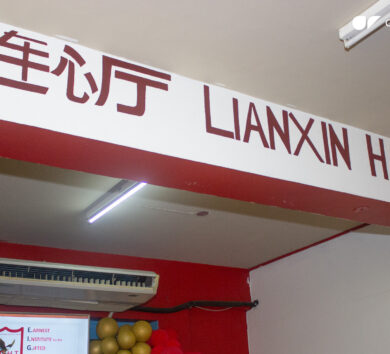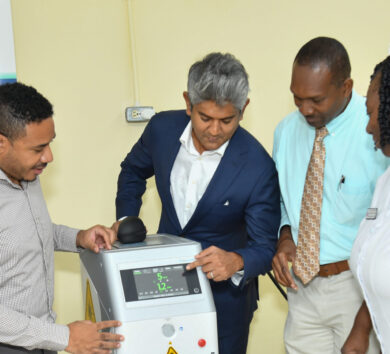Satellite centre will be a critical asset in enhancing tourism resilience and sustainability among East African tourism destinations

Kenya has officially launched its own Global Tourism Resilience Satellite Centre at the Kenyatta University, with help from Jamaica.
The satellite centre will expand the international reach of the Global Tourism Resilience and Crisis Management Centre (GTRCMC), based in Jamaica at the University of the West Indies, Mona campus. Jamaica’s tourism minister, Edmund Bartlett, who officially launched the satellite centre in his capacity as founder and co-chair of the GTRCMC, said he was particularly pleased to undertake this official launch.
He said the launching of the centre comes two years after initial discussions to establish it at the Kenyatta University.
Bartlett emphasised that the satellite centre will be a critical asset in enhancing tourism resilience and sustainability among East African tourism destinations.
Additionally, the Kenya Satellite Centre will be a focal point for developing, coordinating and supporting resilience-building and response efforts in the African continent.
Tourism in East Africa to be boosted by satellite centre
With the satellite centre, the Jamaican Tourism Minister highlighted that “tourism in East Africa is now in a better position to bounce back quickly after disruptive events. The need for tourism resilience has become more critical as threats become more common and the GTRCMC Eastern Office presence will further enhance the capacity of the tourism sector across 16 African countries”.
He added that “ultimately, this centre will become a key catalyst for sustainable tourism development and ensure that global tourism can adapt and respond to the uncertainties of its internal and external environment”.

For his part, Professor Lloyd Waller, GTRCMC executive director, argued that “the Eastern Africa Satellite Centre itself forms part of a wider global network of Centres around the world that collectively function as a global think tank to tackle global and regional challenges to the tourism sector through the sharing of information”.
He added: “Already, our joint efforts regarding tourism recovery have demonstrated the utility of such an approach to tourism resilience.”
Role of GTRCMC
Established in 2017, the GTRCMC’s mission includes assisting global tourism destinations with destination preparedness, management and recovery from disruptions and/or crises that affect tourism and threaten economies and livelihoods globally. The GTRCMC has offices in the Caribbean, Africa, and the Mediterranean and affiliates in over 42 countries.
It was conceptualised at the United Nation’s World Tourism Organization’s Global Conference on Sustainable Development held in Montego Bay, Jamaica in November 2017. The proposed establishment of the GTRCMC reflected a call to action for global tourism stakeholders to collaborate and institutionally respond to the wide range of traditional and non-traditional threats that have been increasingly destabilising global tourism.
The mandate of the GTRCMC is to create policies, toolkits, and guidelines designed to enhance the capacity of vulnerable tourist destinations across the globe to mitigate disaster risks as well as to manage recovery efforts in the aftermath of crises. To expand the global reach of the GTRCMC, the decision was taken by the Centre’s Board to establish four Satellite Centres to serve different regions and sub-regions of the world.
Two of those Satellite Centres have already been opened in Kenya at the Kenyatta University and Nepal with plans afoot to establish others in Hong Kong, Japan, and Seychelles.
Tourism reliance now more imperative than ever
Bartlett argued that, as the world currently grapples with the COVID-19 pandemic, threats like these threats will become more common, as such tourism resilience will take on greater prominence to ensure that global tourism can adapt and respond to the uncertainties of its internal and external environment.
As the world looks to the future, the GTRCMC will continue to strengthen collaboration with its network of local, regional, and international partners to mitigate the impact of the pandemic on destinations as well as to identify effective strategies for their recovery and to enhance their preparedness and responsiveness to future shocks.
In the immediate and foreseeable period, the GTRCMC will be required to play a pivotal role in supporting global crisis management, mitigation, and recovery efforts in the tourism sector.







Comments